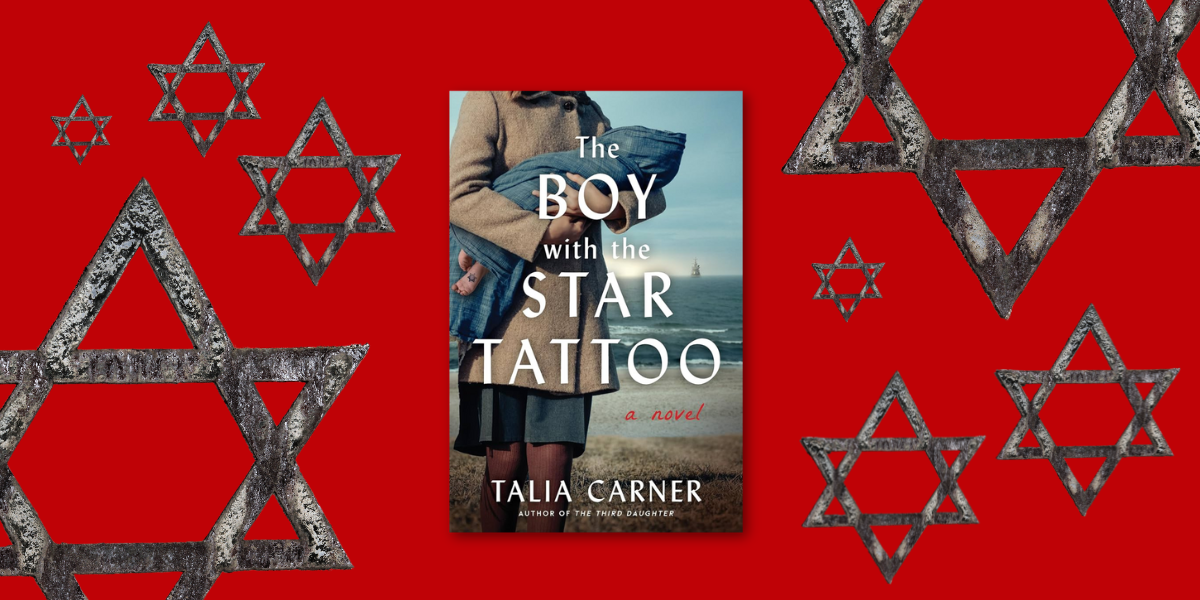Books
‘The Boy with the Star Tattoo’

The Boy with the Star Tattoo
By Talia Carner (William Morrow)
In her latest outing, Talia Carner once again shows off her skills as a master storyteller.
As with her previous acclaimed work, The Third Daughter, about Jewish women sold into slavery through Zwi Migdal, a real-life organization of unionized pimps in Argentina, Carner weaves fiction with fact. The Boy With the Star Tattoo explores two historical episodes separated by decades. The first, set in the aftermath of World War II, involves postwar efforts to repatriate Jewish children to Mandate Palestine. The second delves into the Cherbourg Project, a covert military operation in which Israel took possession of five boats purchased by Israel and built in a shipyard in Cherbourg. The boats, however, were prevented from being delivered due to an arms embargo by the French government.
The book starts in 1942, under France’s Vichy government. Claudette Pelletier, disabled since birth and a seamstress by trade, finds her dream romance with Raphael, a young Jewish man hiding in her employee’s chateau in the south of France. She realizes that she is pregnant after he’s forced to flee.
Claudette gives birth to a son and, though Catholic, gives him a Jewish name, Benjamin. Circumcision is not possible, but she has a Jewish star tattooed on the sole of his foot as a reminder of his identity. Later, she, too, is forced to leave her country—and her child is placed in the care of his nursemaid.
DISCUSSION GUIDE: ‘The Boy with the Star Tattoo’
In the later story, Israeli Sharon Bloomenthal is mourning the loss of her fiancé, Alon, in 1968. He was stationed on the Dakar, an Israeli submarine that went missing with, presumably, its entire 69-person crew onboard.
Naval officer Daniel Yarden approaches Sharon, recognizing her outstanding army service record, and asks her to join the team that Israel is assembling to handle the Cherbourg covert operation in France. Still in mourning, at first she demurs. But in one of the best lines of the book, her grandmother convinces her to take the assignment, stating, “To be a Jewish woman is to not accept defeat.”
The novel is suffused with appealing, authentic and heartwarming touches. Israeli-born Carner knows her stuff and throws in details that ground her story. A few examples: The carp that Sharon’s grandmother keeps alive in her bathtub until it is prepared for a Shabbat meal, and the daily broadcast on Israeli radio with the names of Holocaust survivors living in the Holy Land, for those still searching for missing family.
Most heartwarming of all, though, are the chapters related to Uzi Yarden, sent to Europe as part of Youth Aliyah to find orphaned survivors and bring them back to the Land of Israel.
Carner’s skill in tying together the disparate narratives is what makes her a storyteller. While occasionally she fumbles in crafting this intricate narrative, she still captivates the reader’s interest—and that’s what makes her a master.
However, coincidences and suddenly revealed character connections abound in the novel. For the record, I dislike the use of coincidence in novels, it can be heavy-handed and give away the denouement. But pretty much every character Carner creates is so compelling and pure of spirit, it doesn’t matter.
Halfway through the book, I was sure I could predict the ending. Despite that, the ending made me, as I am sure it will every reader, happy.
Curt Schleier, a freelance writer, teaches business writing to corporate executives.










 Facebook
Facebook Instagram
Instagram Twitter
Twitter
Leave a Reply